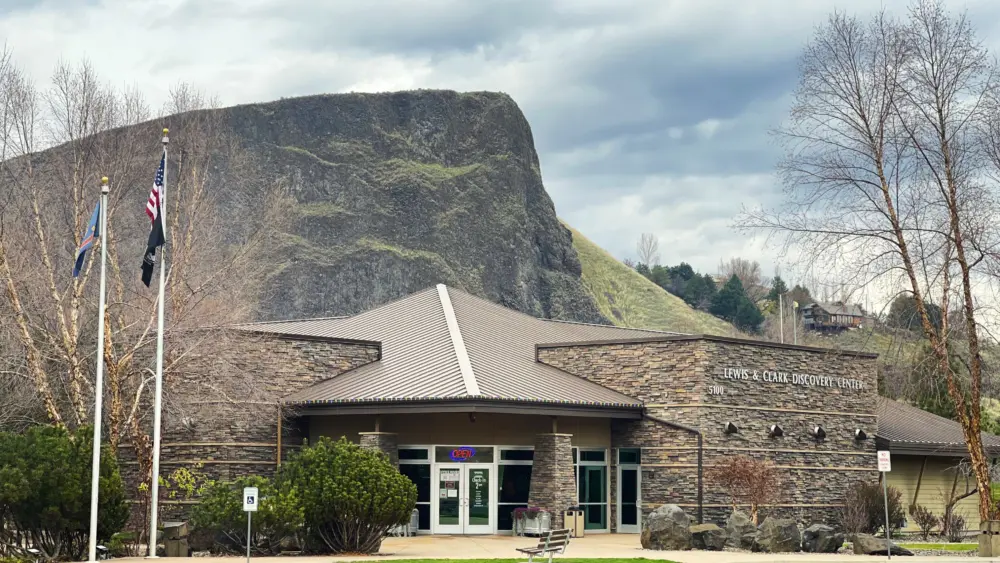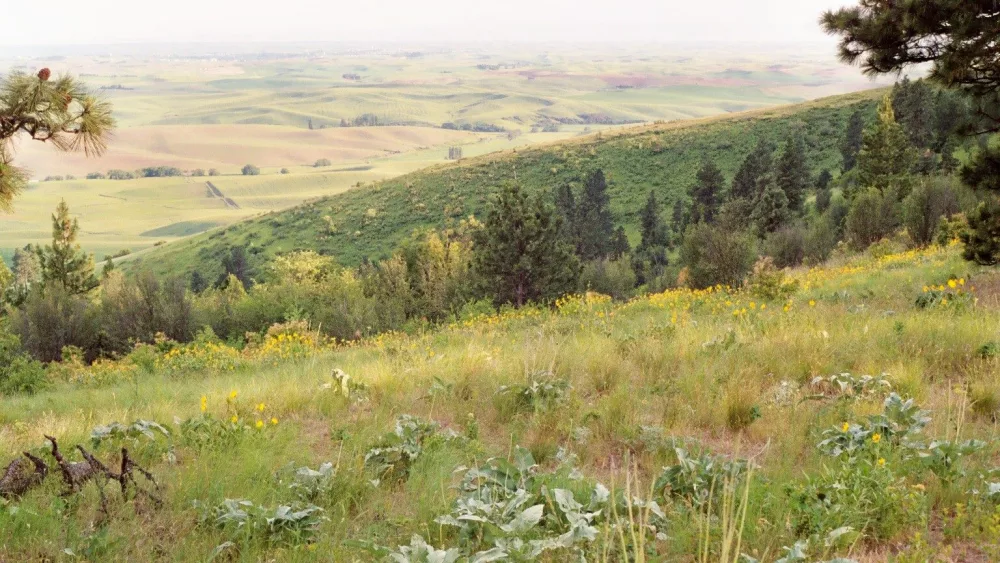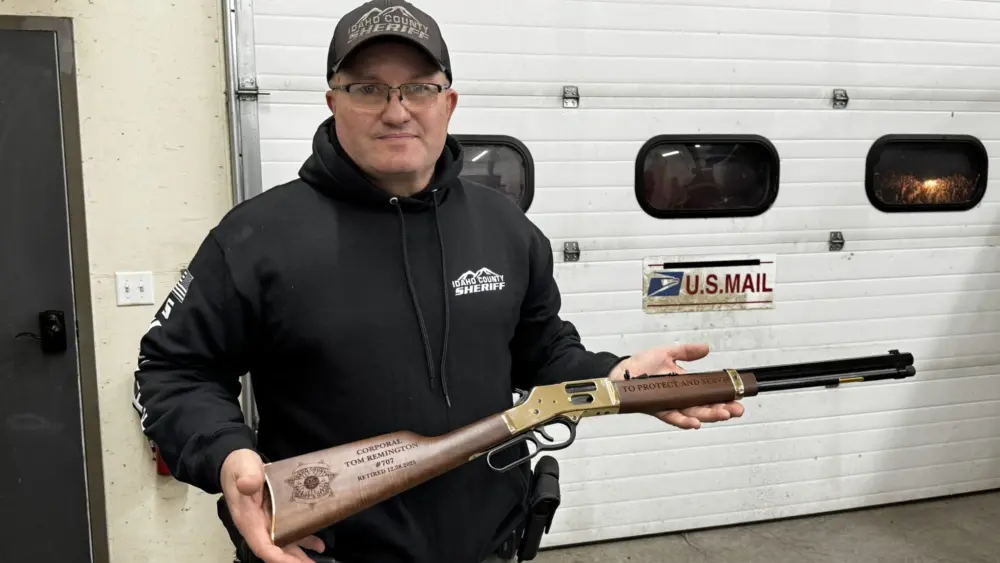The male eagle — unable to hunt in the wild due to eye trauma after possibly being struck by a car — is the second eagle at the Yakama Nation Aviary, a tribal facility that houses unreleasable eagles and other birds of prey for ceremonial and educational purposes. As just the third resident of the aviary, the eagle’s feathers, which represent courage, strength and wisdom in many Native American cultures, can be collected and distributed to tribal members at graduations, weddings, funerals and cultural celebrations.
“The eagle is very sacred to us and has great significance in our lives,” said Jerry Meninick, a Yakama elder, previous Yakama Nation Tribal Council member, and current deputy director of culture. “To us, the eagle is a messenger, meaning it not only has a responsibility here on Earth, but it has connection and communicates to the spiritual side of our lives.”
The eagle, protected under the U.S. Migratory Bird Treaty Act of 1918, was placed with the Yakama Nation following a process by the United States Fish and Wildlife Service that gives tribes in the region an equal opportunity to take in unreleasable birds of prey with cultural significance. The bird was treated by WSU wildlife veterinarians during that time.

While eagle feathers are mostly salvaged from the carcasses of dead birds, the Yakama Nation Aviary brings an opportunity to collect feathers from eagles through natural molting.
Michael Beckler, wildlife biologist for the Yakama Nation, said the only other way to attain eagle feathers legally is through the National Eagle Repository in Colorado, which sees a high demand and can take months to fulfill orders. All eagles that die or are euthanized at WSU and other rehabilitation centers are sent to the feather repository.
“By housing and caring for these birds at our aviary, we can meet the needs of our 14 bands and tribes that make up the ‘Confederated Tribes [and Bands] of the Yakama Nation,’ and not need to go through the national repository,” Beckler said. “That would also increase feather availability at the repository for those other tribes who don’t have an aviary.”
Beckler said the tribe hopes to expand the aviary to house up to 40 birds of prey. At capacity, such a facility could harvest around 300,000 eagle feathers annually.
The once-grounded golden eagle, brought in early October to WSU’s Veterinary Teaching Hospital for a broken left wing and injured left eye, now has no problems taking flight — his wing was repaired and has fully healed.
“His wing injury was repairable, but he wouldn’t survive in the wild because of the trauma to his eye so he cannot be released. He is a perfect candidate for placement and those just don’t come around often,” said WSU wildlife veterinarian Dr. Marcie Logsdon.

Logsdon said the bird’s vision will not affect his quality of life in captivity. The bird will join two other birds of prey at the aviary, one of which, a red-tailed hawk named Apollo, was also rehabilitated at WSU more than 10 years ago.
“I am incredibly honored to be a part of this opportunity,” Logsdon said. “Native American tribes have been on this landscape a lot longer than we have, and they have had a sustainable relationship with these birds for generations. This isn’t a perfect resolution, but it is an opportunity for them to continue interact with these birds for ceremonial and religious purposes.”




